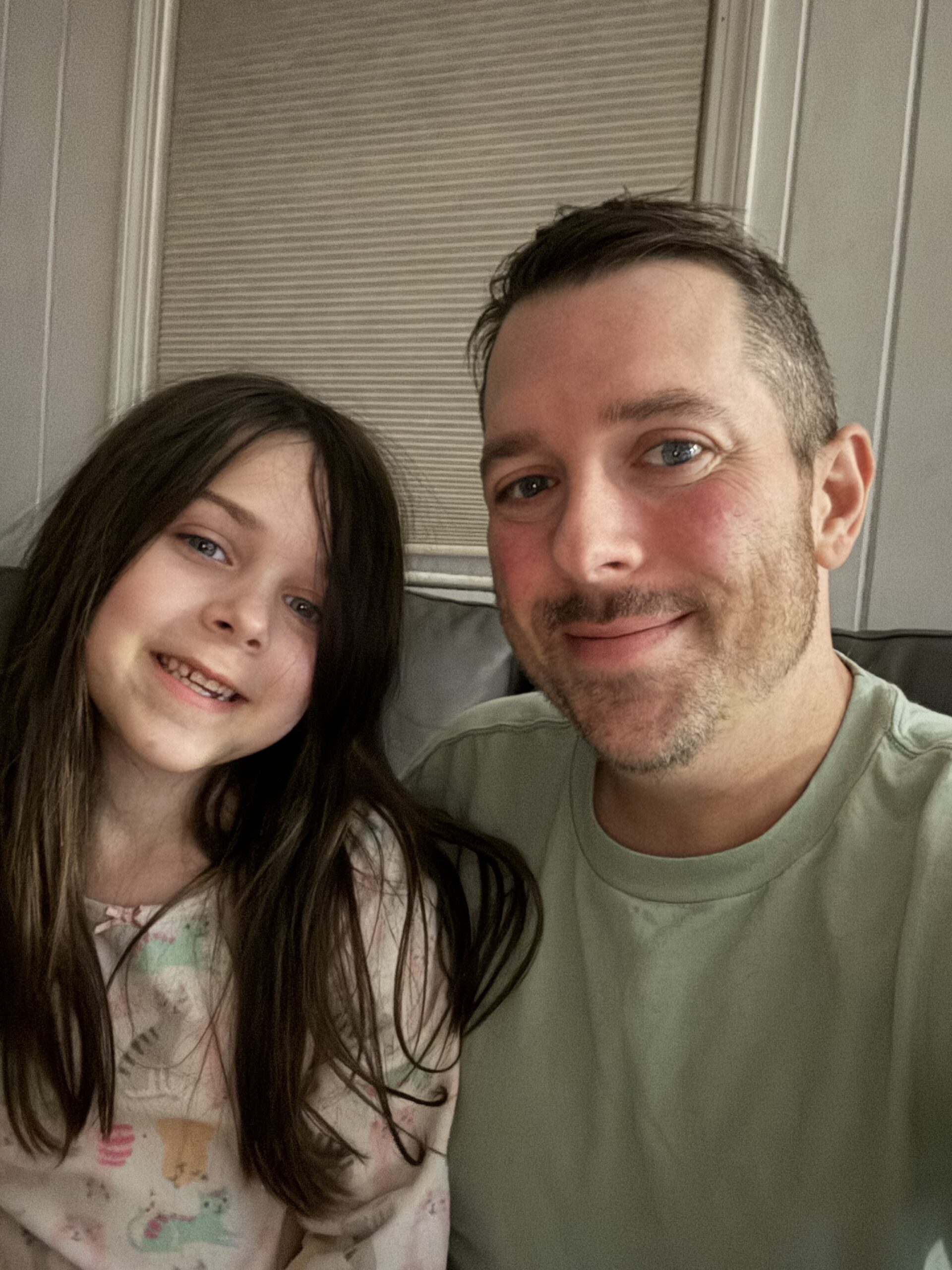So often, when you might hear a diagnosis of head and neck cancer, there’s an obvious first question. “Were you a smoker?”
Yet it’s essential to know this is not always the link, which is true in the case of Brian Doheny. He was not a smoker; he had no extensive family history. However, Brian was diagnosed with stage 4 squamous cell carcinoma in his throat and neck in August 2023.
Brian had had swallowing problems before, and doctors even found a small growth. But it went away on its own in a few weeks.
Then, the feeling of difficulty swallowing returned, and this time, doctors found a mass almost the size of a golf ball. It was cancer. They also found a bump on Brian’s lymph nodes. Because it had spread, his cancer was diagnosed as stage 4.
For a father of two young children, this was a terrifying diagnosis.
Undergoing treatment for cancer patients is hard enough, but a diagnosis can cause a financial strain on families, and that was the case for Brian. But Brian’s story presented another problem. Brian had recently started a new job and had only been there for a few months when he received his diagnosis. As the process unfolded and burdened with an extremely scary outlook, Brian took a few days off, mentally out of it and needing some time. Then, the prospect of treatments loomed as well. In many cases, you must be at a job for a year before receiving Family Medical Leave Act (FMLA) benefits, allowing someone to take time without fear of losing your job.
So, Brian ultimately had to begin treatments without a job and with the burden of trying to take care of his family financially. This type of job interruption is one of the contributors to financial toxicity that the Joe Andruzzi Foundation talks so much about and is trying to help solve for New England cancer patients.
A social worker at Dana-Farber Cancer Institute told Brian about JAF, and the Foundation was able to help.
“[It] took some of the fear away pretty quickly,” Brian said, “just knowing there was some money coming in from JAF. [It was] a burden off my hands being able to have some funds to pay for some necessities, allowing me to my employment on hold during my treatments so I could focus on my health. It definitely made it a lot easier with the help from [JAF].
Treatments were not easy. Brian went through seven weeks of radiation on his throat and neck area.
“It was like having third-degree burns all around my neck,” Brian said.
Brian also did five rounds of chemotherapy. He was laid out on the couch for months, not able to help his wife care for their young family much. He had to eat through shakes and liquids from a feeding tube in his stomach, sometimes for 20 hours a day. But thankfully, the prognosis from his doctors started to improve.
In January 2024, oncologists told Brian they saw no signs of cancer.
Brian has tried to give back, using his story to help others with similar diagnoses. He stresses the importance of early screening. Brian is 38, not someone you’d expect for a diagnosis like this. He’s encouraged others to go to support groups and ask for help.
Thankfully, Brian is now on the mend, working to regain his strength and muscle. Physically, emotionally, and financially, it was a long and scary process for Brian and his young family. He’s very appreciative of the help from JAF and how easy it was to access as a patient.
“There’s so much out there; it’s overwhelming. Having the social worker come to me with the options and assisting me with the application at an emotional time was so helpful. [JAF] responded so quickly with help, and that was great. I appreciate all of that.”
JAF is so glad to have been there for Brian when he needed us most and offering a simple, accessible pathway to help at a time when everything can seem overwhelming.


